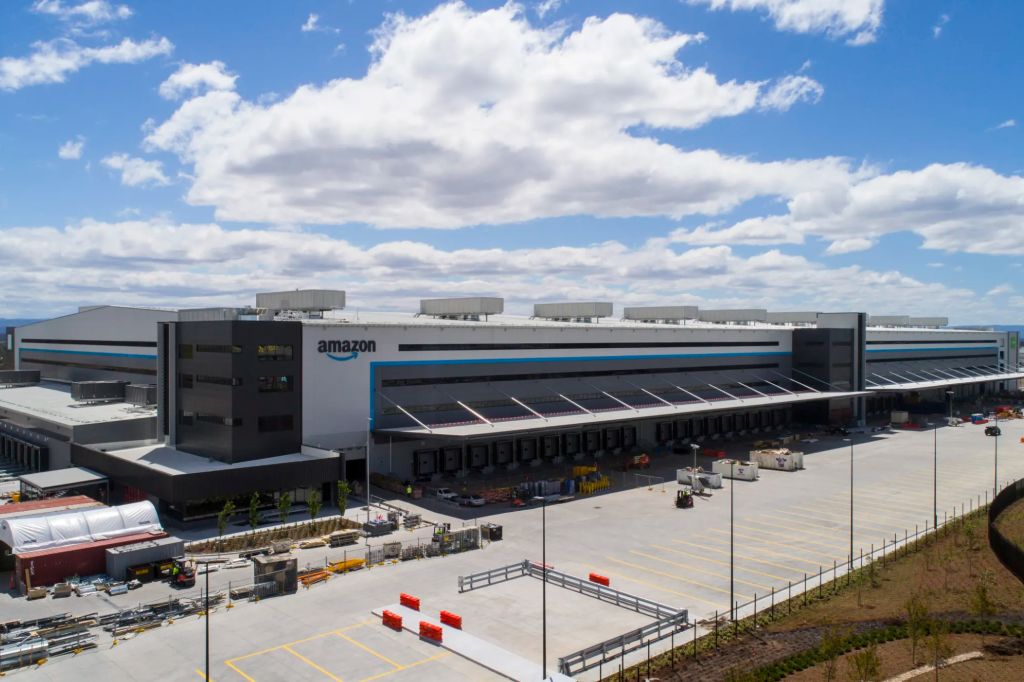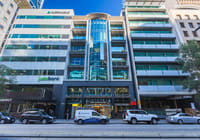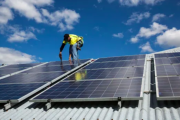
Changes in the warehouse sector as Goodman targets $100m in funds
Goodman, the world’s largest warehouse developer, says the sector is facing a structural shift, with tenants such as the online giant Amazon deferring large-scale expansion plans and focusing on driving existing space harder.
This, combined with inflationary concerns and supply chain issues, will lead to the booming sector scaling back its momentous growth path in coming years.
Goodman chief executive Greg Goodman said shed developers cannot keep pushing sites and buildings further away from major cities, with the high cost of transport and infrastructure, and that is forcing the sector to make existing properties closer to the capital cities future-proof.
He said it is a structural change for the sector, which has had extraordinary levels of growth in terms of space and rents since e-commerce became popular. This trend exploded during the global lockdown, when consumers were forced to shop online.
This has not dented the group’s strong outlook and its focus on growing its capital partnerships.
Goodman is aiming to have $100 million in funds under management in the next three years. By the end of June it will be $70 million. This is being driven by tight supply and high occupancy in its markets.
The ASX-listed Goodman is the world’s biggest industrial developer and has a market value of $35.77 billion. At its March quarterly update, the group issued an earnings guidance of 23 per cent growth, adding that customers continue to intensify warehousing in urban locations, and increase automation and technology to optimise delivery and improve supply chain efficiency.
“Amazon, which is a major tenant of ours, said at its recent update that it has lots of space, and now they’re going to drive it harder,” Goodman said.
“And that is the conversations [sic] we have been having with their teams. So, that’s why we’re very, very focused on location and we’re very focused on the regeneration of sites.”
Tenants like Amazon, which opened its first robotics fulfilment centre at Goodman’s eastern creek site last month, are focused on the sustainable features in the warehouses, such as the power conduits and electricity, the parking stations, electric vehicles and minimum waste.
At its quarterly update, Amazon posted a $4 billion loss ending March 31, the first quarter in red figures since 2015. Amazon chief executive Andy Jassy warned that the group would scale back some of its expansion plans to focus in existing space over time.
Goodman said it’s important for efficiency to keep the centres closer to the population centres.
“You can’t keep pushing housing and infrastructure further and further out. With industrial developments, there will be more regeneration regarding certain locations in and around the cities, rather than just pushing the infrastructure further and further out,” Goodman said.
Regarding the supply chain issues that are impacting the global economy, Goodman predicts there will be a “wave of nationalism” where people want more of their own product generated in their own countries.
He said that is going to be an important issue in the future regarding the supply-and-demand equation.
“The global economy just got bigger; it got smaller pre-pandemic, then all of a sudden it just got way bigger,” Goodman said.
He said more tenants will look to increase efficiencies in ordering and storing goods as much as possible to avoid supply chain issues, and that will underpin the demand for sustainable warehouses.
Investors have not been deterred by the concern of headwinds, with MSCI Real Capital Analytics reporting that the industrial sector continued at full steam, posting the highest level of volumes in the first quarter of $4.1 billion.
Real Capital Analytics head of real estate research, Pacific, Benjamin Martin-Henry said the deals in industrial properties eclipsed the retail sector, which reported $2.7 billion in first-quarter deals and the office sector with $3.4 billion.











